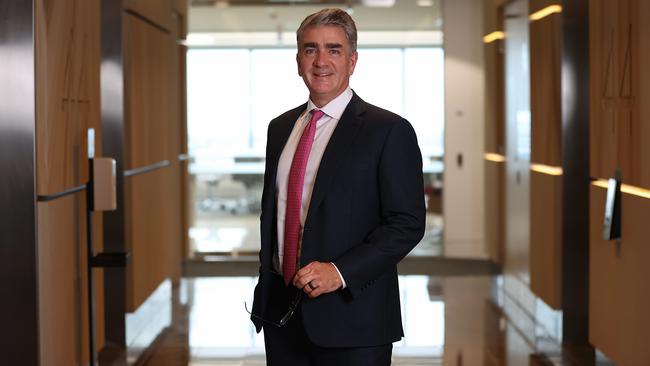No hard landing for China or US, Oaktree predicts
Oaktree portfolio manager Frank Carroll expects China will avoid a hard economic landing and the US will avert a ‘deep recession’ over the next year.

Oaktree portfolio manager Frank Carroll expects China will avoid a hard economic landing and the US will avert a “deep recession” over the next year, as he laments excessive financial market pessimism.
Mr Carroll, who is also a managing director at Oaktree, which is co-chaired by investment guru Howard Marks, said he expected China would make “incremental moves” away from its zero Covid-19 policy and end it by mid-2023.
“That might be all the market really needs. You can see Hong Kong has already come a really long way in a short period of time,” he said in an interview.
Mr Carroll highlighted that China avoided the massive Covid-19 stimulus and government support that were prevalent in the US, Europe and many other markets, giving it ammunition to manage a slowdown.
“They have room to do that now if they wanted to … Investors have been calling for a hard landing in China for 15 years – it’s not going to happen. The currency is still closed.”
But fears of a global recession have sent the US dollar soaring in recent weeks, leaving many currencies vulnerable. The Australian dollar slid to a 2½-year low versus the greenback on Monday, and emerging market currencies have also suffered.
Mr Carroll – who manages Oaktree’s emerging market equities funds – said that with consensus being that the US Federal Reserve would end its rate hiking cycle in the first quarter of 2023, the pressure would start to be alleviated.
“You’ve probably seen the worst of the pressure on the (US) dollar versus global currencies, because again we are closer to the end (of the tightening cycle) than the beginning,” he added.
While Mr Marks has a longstanding disregard for market forecasting, Mr Carroll said his personal view was the US would sidestep a “deep recession”.
He highlighted healthy consumer spending and the fact that a large proportion of mortgages there were on fixed rates.
“The Fed’s impact on housing is not as strong as the impact in places like Hong Kong or Australia, where the majority (of home loans) are floating rates,” Mr Carroll said.
He also expects that the US will have to ditch its inflation targe – a move that would be closely watched in markets like Australia where the Reserve Bank has faced criticism over its own target.
“The Fed is going to have to adjust its inflation target and I think 2 per cent goes out the window,” Mr Carroll said.
“Structurally, based on the labour shortage and supply/demand issues, I think the Fed is going to have to accept 4 per cent inflation. They won’t do that until after the election, but I think they’re going to have to.”
He does, however, overwhelmingly agree with Mr Marks on forecasting: “The macro is very hard because none of us has an edge.”
A shift away from globalisation during the Covid-19 pandemic – which created supply chain issues and bottlenecks – was also occurring, creating debate in 2022. Mr Carroll said that was likely to benefit several emerging markets and create margin pressure for US companies.
“That’s going to hurt US companies because … that’s going to mean margin pressure as you re-shore the supply chain,” he said.
“That is a negative for developed market countries. The US does have an energy edge, so that the cost of the energy input today won’t be as tough as say, for Europe, which is short energy particularly because of the Russia situation.
“We do seem to be unwinding globalisation … arguably EM (emerging markets) have the edge because the supply chain already exists there, and with cheaper currencies like the Brazilian real or the Mexican peso, or here in Asia, there is an advantage to manufacturing.”
Mr Carroll said markets such as Brazil, Indonesia, India and the Middle East were well placed to get a boost from the onshoring or near-shoring trend.
It’s been a challenging time, however, for those investing in emerging markets.
The Oaktree Emerging Markets Equity Fund has declined about 20.7 per cent this year, while the Oaktree Lux Funds have dropped about 21.5 per cent.
That is better than the benchmark the funds are measured against, with the year-to-date return for the MSCI Emerging Markets Index down 27.1 per cent.
Mr Carroll said the emerging market declines across valuations and currencies would present buying opportunities. He pointed to companies in emerging markets having shored up their balance sheets, leading to more capital management.
“Our portfolio is a greater than 5 per cent dividend yield today versus the benchmark at around 3 per cent,” he added.
Oaktree also has a scoring model to screen stocks for environmental, social and government metrics. ESG factors are part of the firm’s bottom-up research for its emerging markets strategy. Mr Carroll is the co-chair of Oaktree’s ESG governance committee.






To join the conversation, please log in. Don't have an account? Register
Join the conversation, you are commenting as Logout